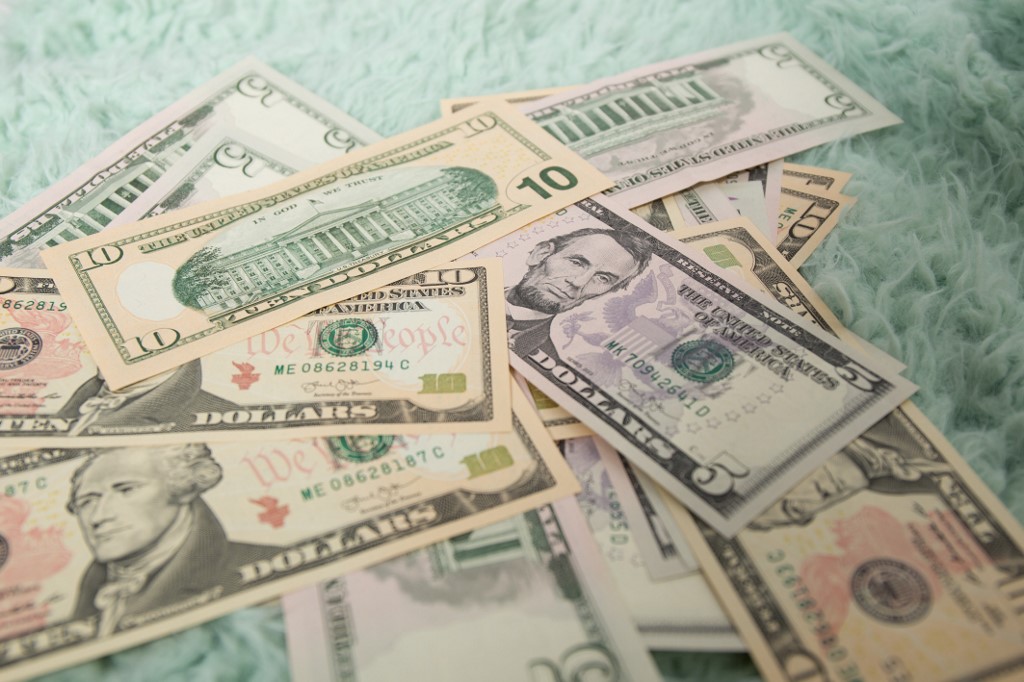(ATF) The demise of the dollar is nigh. By eroding global trust in the US, Donald Trump risks bringing to an end the greenback’s dominance of the international monetary system, opening the door for the renminbi to gradually displace it.
Well, that’s the theory. And it’s true that the US president’s wilful neglect of the alliances and institutions that have helped Washington project geopolitical power since 1945 are shaking confidence in the US. So, is Trump’s ham-fisted handling of the coronavirus pandemic and the protests sparked by the death of George Floyd (the black man who died under the knee of a policeman in Minneapolis).
“We may be heading towards a post-dollar world” was the headline in a recent Financial Times column.
But a closer look at some of the pillars supporting the dollar’s supremacy suggests that it is likely to remain the world’s principal reserve currency for the foreseeable future. Five main supports spring to mind:
- Economic size. The US overtook Britain as the world’s largest economy around 1870. But it took another 40 years – and the calamitous impact of World War One on British finances – before the dollar first supplanted sterling as the leading international currency. China might catch up the US one day in terms of GDP, but not on per capita income. As Premier Li Keqiang said at his National People’s Congress news conference, 600 million Chinese get by on 1,000 yuan a month.
- Military strength. Currency power has always gone hand in hand with military power. The US spends as much on its armed forces as the next seven countries combined. China is rapidly enhancing its military capabilities and is ahead of America in some areas. But the US, with 11 aircraft carriers to China’s two, can project force much more potently.
- Financial markets. The US boasts the deepest capital markets in the world, making US Treasuries the safe asset of choice for international reserve managers. China has opened its bond market to foreigners, but the yuan will be disqualified from becoming a widely used international currency as long as Beijing retains capital controls.
- Incumbency. Inertia makes it hard to knock the dollar off its perch. It’s the currency of choice for global trade and international bond issuance. Central banks hold more than 60% of their reserves in dollars. Oil and most global commodities are priced in dollars. Breaking this stranglehold is not impossible. The popular Shanghai oil futures contract is denominated in yuan. But if “everybody” is already using the dollar, creating what economists call a network effect, why switch?
- Trusted institutions. The rule of law overseen by impartial courts, predictable regulation and central bank independence all take time to establish. The Federal Reserve was not created until 1913. Of the two potential challengers to the dollar, the euro zone is still groping towards a banking union and a common budget while it is hard to imagine the Chinese Communist Party taking its hands off the levers of power.
America’s soft power is also a factor. At a subliminal level the halo effect of everything from Hollywood and Mickey Mouse to the NBA and Coca-Cola adds to the dollar’s attractions.
And then there is hard power. Whereas China has an alliance treaty only with North Korea, the US has agreements to come to the defence of more than 50 countries. If an ally such as Japan or South Korea has an informal understanding to support the dollar as a quid pro quo for sheltering under the US military umbrella, under what circumstances would it transfer its allegiance to China? Simply to pose the question suggests the answer: not impossible one day, but very unlikely as things stand now.
Testing allies’ patience
President Trump is admittedly testing the patience of his allies by undermining the very international institutions that are the bedrock of the post-war liberal global order and that have magnified US influence and power. He has denigrated NATO, brought the World Trade Organisation to its knees and promised to pull out of the World Health Organisation.
Trump has also fuelled disquiet by his rush to weaponise finance, trade and investment in his new cold war against China, allowing aides for instance to muse about cancelling China’s holdings of US Treasuries.
But these acts of self-harm alone will not dethrone the dollar. Tellingly, the world flees to the haven of the dollar in times of crisis, like now, and counts on the US to avert global cash crunches. So the Fed has revived swap lines with 14 partner central banks, including those of Japan, South Korea and Singapore, to keep dollar funding markets from gumming up. It lent almost $650 billion this way during the Global Financial Crisis in 2008.
Unless China – it can only be China – is able and willing to lend on this scale, America’s role as a provider of public goods such as emergency infusions of liquidity can be added to the reasons why the dollar is set to retain global currency leadership.
Of course, nothing lasts forever. The Bretton Woods system of fixed exchange rates lasted less than 30 years. Today’s non-system of floating rates and free capital flows is now half a century old and, beset by recurring economic and financial meltdowns, is showing its age.
With global debt at eye-watering levels, another financial crisis could trigger a search for a new, more stable system that relies less on the dollar. Governments could also seek a workaround for the dollar as a method of payment if America continues to slap financial sanctions on banks and firms doing business with countries in its bad books, such as Iran and North Korea.
And then there is China. Beijing’s steady accumulation of gold in its reserves and its rush to develop a digital yuan are fanning expectations that China will reduce its reliance on the dollar. But would the e-yuan be trusted any more than the old-fashioned one?
Talk of a multi-currency global monetary system has been around for years and President Trump is doing the dollar no favours, but don’t count the greenback out yet.
– + – + –
Alan Wheatley is an associate fellow at Chatham House, the London think-tank. He was formerly the global economics correspondent and China economics editor for Reuters.
ALSO SEE: Asia can learn from Europe’s response to Covid crisis
























